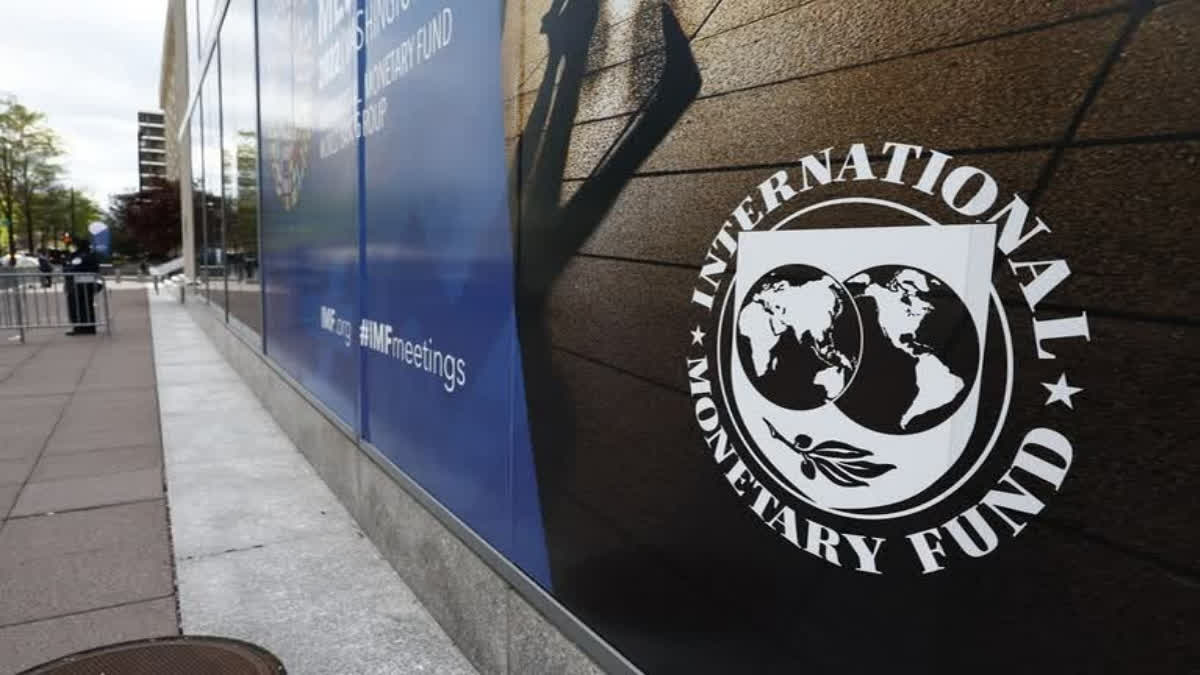Islamabad: Cash-strapped Pakistan and the IMF are discussing a new short-term standby arrangement (SBA) worth about USD 2.5 billion to get the country through the political transition to the newly-elected government in the second quarter of the current fiscal year, according to a media report on Wednesday.
Pakistan's ninth review by the International Monetary Fund (IMF) under the 2019 Extended Fund Facility (EFF) for the release of a USD 1.2 billion tranche is still pending with the programme's expiry on June 30. A new short-term six to nine months standby arrangement (SBA) is being discussed by Pakistan and the IMF worth about USD 2.5bn, the remaining part of the EEF expiring on June 30, the Dawn newspaper reported.
Pakistan Prime Minister Shehbaz Sharif on Tuesday discussed the IMF programme with IMF Managing Director Kristalina Georgieva and expressed hope that coordination on the points of the bailout programme would lead to a decision from the global lender in a day or two, a statement by the PM Office said.
Pakistan signed a USD 6.5 billion package with the Washington-based IMF in 2019.
The plan was derailed several times and the full reimbursement is still pending due to insistence by the donor that Pakistan should complete all formalities.
The SBA is one of the two options currently under discussion by the two sides after the government met all the conditions and prior actions of the ninth review, and also those relating to subsequent 10th and 11th tranches without disbursement of USD 2.5 billion funds outstanding since October 2022, the report added.
The options have been discussed at the staff level and during recent back-to-back engagements between Prime Minister Sharif and Georgieva, including the one through telephone on Tuesday morning. In the strict sense, we have completed conditions of not only 9th but with the revised budget, the terms of 10th and 11th reviews had also been met and (Pakistan) deserves disbursement of entire outstanding approved quota, an official was quoted as saying by the newspaper.
The two sides had exchanged a memorandum of economic and financial policies (MEFP) a few days ago for completion of the 9th review, the official added. However, the Fund's rules do not provide quick reviews, particularly when the programme's one-year extension expires on June 30. This was explained by Georgieva to prime minister Sharif in Paris.
The IMF has acknowledged Pakistani authorities' swift completion of policy actions. Earlier, IMF staff raised objections over the original budget presented on June 9 but has now confirmed that the revised budget, including additional taxes, expenditure cuts, an end to amnesty scheme for remittances etc, had met its programme requirements.
The two options include the disbursement of USD 1.1 billion under the 9th review. But once approved by the IMF executive board, this would mean the end of the programme, without the possibility of release of two subsequent tranches of USD 1.4 billion. This, however, is not a preferred option for the government because Pakistan would lose USD 1.4 billion worth of quota approved by the IMF executive board, the report added.
The other option under consideration is to enter into a new short-term arrangement with upfront disbursement equivalent to the 9th review (USD 1.1 billion) within the next 15 days, followed by two-three more reviews for up to USD 500 million each. This would send a message of stability to the markets as the current government completes its term in less than two months and is to be replaced by a caretaker setup until a new regime takes charge after the general elections.
For both options, the two sides have to announce a staff-level agreement by June 30 for confidence building. The executive board approval could follow over the next week or so. For us, the priority is to secure the entire amount of USD 2.5 billion, sources were quoted as saying by the report, adding the authorities pitched a higher amount for SBA but perhaps that was asking for too much.
But to achieve this, the government may have to increase the petroleum levy by up to Rs 5 per litre in the coming pricing review to secure at least an average of Rs 55 per litre petroleum levy for the year and commit to the expedited regulatory process for rebasing of electricity tariffs by Rs 5-8 per unit with effect from July 1 even if its approval takes a couple of weeks.
Both EFF and SBA windows are similar in nature except that EFF has a longer (3-4 year) tenure to address the medium-term balance of payment challenges while SBA is generally short-term (9-24 months) with relatively flexible terms. Meanwhile, Pakistan expected inflows from friendly Arab countries over the next couple of days to close the fiscal year with a higher foreign exchange reserve position.
Pakistan urgently needs the IMF loan which will open avenues for more funding by various multilateral and bilateral donors to support its meagre foreign reserves of around USD 4 billion. Pakistan's economy has been in a free fall mode for the last many years, bringing untold pressure on the poor masses in the form of unchecked inflation, making it almost impossible for a vast number of people to make ends meet.
Pakistan started preparations for the general elections with a meeting of the election commission recently. The current National Assembly will complete its five-year term on August 12 and the fresh general election must be conducted within 60 days as laid down in the Constitution of Pakistan. (PTI)



